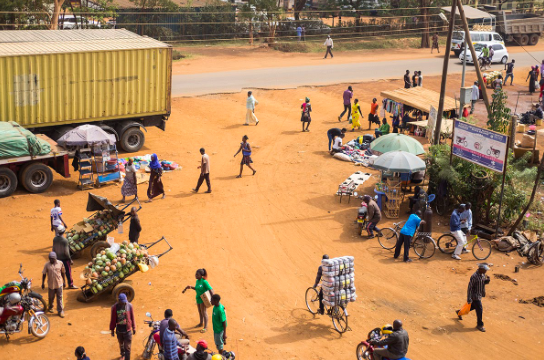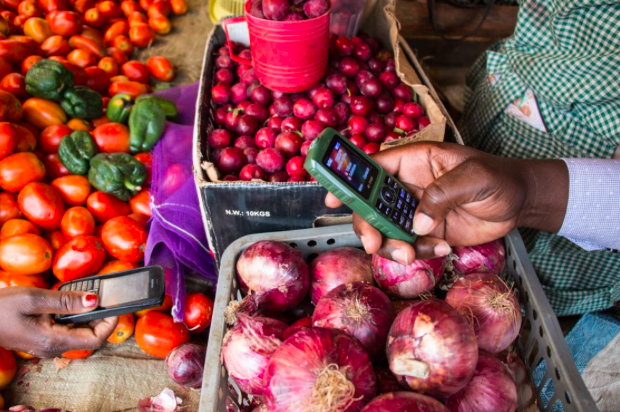This project explores how COVID-19 has impacted small-scale traders in East Africa and the resiliency of corruption at the border.
Project Summary
Small-scale trade between Kenya and Uganda is critical to livelihoods and well-being in border towns. Despite official efforts to promote more open and efficient borders, small-scale traders—most of whom are women—face serious challenges, including arbitrary extraction of payments and goods. This makes small-scale trading hazardous and reduces its socio-economic benefits which include poverty reduction and food security.
In light of the COVID-19 pandemic, this project also uses phone surveys to explore how COVID-19 has impacted small-scale, cross-border trade at the Uganda and Kenya border at Busia and the Kenya and Tanzania border at Taveta. The project seeks to understand how corruption at the border changed during the pandemic with the different public health measures including closures at the border and how the dynamics are gendered.
Policy and Programming Implications
This work aims to encourage current policy and programming on border reform to look more carefully at the particular challenges of small-scale traders and the gendered aspects of their border interactions, especially during the post-COVID recovery period. A great deal of policy reform appears to focus on larger and more powerful cross-border traders. In contrast, this research aims to amplify the voices of small-scale traders in policy discussions and identify specific changes required to effectively address the particular challenges of these traders.

Research Questions
- How do small-scale traders make journey choices that create more or less risk of extraction of bribes or goods, and what are the incentives and institutional dynamics that lead to vulnerabilities to corruption?
- How has COVID-19 influenced the dynamics at the border including corruption, and how have traders responded to new border requirements or closures?
- How must policy and programming change to address the specific problems with corruption faced by small-scale traders?
Methodology
The project incorporated 6 phases.
In Phase 1 we conducted basic scoping fieldwork and produced a contextualization study. At the same time we engaged a policy workshop at the Columbia University School of International and Public Affairs to study the gendered elements of corruption facing small-scale border traders and review policy approaches.
In Phase 2 we conducted a systematic review of the growing literature on corruption, gender and small-scale cross border trade (over 150 articles and publications from academic literature, theses and reports) to explore progress and gaps in the state of knowledge and assess whether anti-corruption programs currently draw on this research and address the needs of small-scale traders. Our review also examined the role of technology and ICT in corruption monitoring.
In Phase 3, we conducted a diagnostic survey with cross-border traders who were invited to the overall study pre-Covid in January of 2020. The research team designed the diagnostic survey to assess how traders have shifted their trade behaviors, preferences and attitudes during the Covid context. It aims to capture how traders experience the impacts of Covid on corruption, how they understand the bribes they pay to different actors and where they think money goes when they pay it. We are looking at gender differences and also are comparing three borders Busia, Malaba and Taveta to isolate dynamics that are more general from those that are linked to border characteristics. Therefore, the diagnostic survey sets the foundation for the next phases of research.
In Phase 4 we are capturing longitudinal data on a monthly basis with all available traders (cross-border, local, and inactive traders). The purpose of this four month longitudinal activity is to capture trends in trader behaviors and their experiences with corruption, bribery and harassment as borders begin to slowly open up. We are also adding new questions to the survey each time which ask traders questions designed to expand on previous survey findings. This aims to get to the correct theoretical understanding of how corruption functions (Marquette and
In Phase 5, researchers will run a two-month, small-scale randomized controlled trial on the Sauti platform which allows traders to report on experiences of bribery and corruption. This platform will collect trader experiences each time traders cross the border to assess the ease of their crossborder experience in terms of comfort and costs. The RCT will test different messaging strategies to understand which might encourage the most participation in bottom up data gathering and community monitoring which has been shown to have some. We will also conduct exit interviews to understand whether traders see this as a useful tool that should be continued on the platform.
In Phase 6 we have a final policy dialogue which will allow actors to discuss findings and draw on them for their work.

Research Team Members
Dr. Jacqueline M. Klopp, Research Scholar, Earth Institute Columbia University
Ruth Canagarajah, Program Associate, Busara Center for Behavioral Economics
Dr. Chaning Jang, CSO, Busara Center for Behavioral Economics
Busara field team: Lornah Wahome, Brian Baraza, Paul Omondi
School of International and Public Affairs team: Anindita Chakraborty, Veronica Nnenna Akaezuwa, Shruthi Sriram, Alissa Krueger, Shruti Manian, Aarushi Prabhakar, Brian Ting-Yu Chang, Melissa Trimble, Chutong Zhu
Sauti East Africa: Lance Hadley, David Orega
Quantitative Methods in the Social Sciences (QMSS) Program: Bengusu Ozcan, Jade Qiu, Remy Spanierman, Diego Vasquez
